
How to Become a Vegan- My Journey Part 1
I went plant-based on 1st November 2019. I remember the exact date because it was one of the most crucial decisions I have made. I used to play cricket competitively and like any other sport, cricket requires you to be physically and mentally at your best. But how do you achieve that? Naturally, by engaging in different kinds of exercises and eating a clean diet that is nutritionally adequate. We think low carbs and high protein is a clean diet. Let’s address the protein first. Not just the gym bros & trainers in gyms, but sports coaches also immediately ask you to up your protein intake.
But what kind of protein do you require and how much do you need? The word protein is used interchangeably with animal protein like Chicken, eggs, fish, paneer, milk, etc. The common belief is that animal protein is “superior” to plant protein. I believed it too until I watched the documentary “The Game Changers”. It challenged most of my beliefs about food and nutrition. The documentary offered compelling evidence and scientific data to explain why plant protein is, in fact, not inferior to animal protein. I was curious to learn more. I immediately made a besan dosa for breakfast, instead of the usual egg omelet and started reading up more about a plant-based diet. I made some pretty startling discoveries, to say the least.

The biggest of them was the amount of protein you need. Turns out the supposedly golden recommendation of 2.2g of protein per kilogram of body weight is the upper end of the protein requirement for serious strength athletes. For most people, 1 gm of protein per kilogram of body weight is sufficient, even for building muscle. There is some marginal benefit to be had if you consume a little more protein but it’s not much. It was found that for most people consuming more than 1.6gm of protein per kilogram of bodyweight brought no additional benefits. Stanford University recently conducted a study on the bioavailability and digestibility of plant protein and if animal protein fares better. It does not. Simply put, animal protein is not better for your body nor is it more easily absorbed and digested. In fact, plant protein actually helped you build muscle better than animal protein. This absolutely blew my mind. I had to cancel the whey protein powder I had ordered.
Now onto the carbohydrates and unnecessary hatred towards them. We’ve all been told to reduce our rice intake and switch over to salads. However, as Indians, rice and wheat are our staples. So what do we do? Imagine my surprise when I heard Dr. Garth Davis says that excess carbohydrates rarely get converted & stored as fats in our body. The process is called de novo lipogenesis where nonfat sources (carbs, protein) get converted into fat. However, this happens rarely and at a great energy cost. The process of converting glucose to fat in itself requires huge energy. it just doesn’t make sense for our bodies to do it unless absolutely necessary, and the said necessary situation arises when we eat way more carbohydrates than we require and I am happy to tell you, it happens once in a blue moon. So eat your rotis or rice at night but in controlled healthy amounts!
How does one gain unnecessary weight then? How does one get diabetes? India is highly prevalent in the global conversation of the diabetes epidemic. It is a disease that is gaining significance in urban cities due to deteriorating environmental factors, increased obesity and physical inactivity.So is it because of all the rice and rotis we eat? Wrong. This was the final blow in the defense of me being a non-vegan. Carbohydrates are not the enemy. They never were and they certainly do not cause diabetes or obesity. The culprit often is the saturated fat, animal foods such as chicken, butter, curd, milk, ghee, etc. As I mentioned before, the process of converting nonfat sources to fat i.e. de novo lipogenesis is not cost-effective. It’s much simpler for the body to store the fat we eat as fats. Often simpler answers are the correct ones. Plant-based foods are naturally rich in carbohydrates, which our bodies primarily use as fuel. Carbohydrates do not make you fat. Rice and Rotis and dosas and idlis do not make you fat. The butter and the ghee and the oil we lather on the rotis, that’s what makes us fat.
It gets better though. If you are someone who loves fruits as much as I, brace yourselves. Okay, are you ready? You have been warned. Fruit sugar is one hundred percent good for you. You can eat all the fruits you want. And it won’t make you fat or have any side effects. You might need some time to adjust to all that fiber, but that’s about it. You can and should eat all the fruits and vegetables you can, it will only help in bettering your health and prolonging your life. Here is the best part though. Oh yes, we have just reached the climax. Any guesses? You love this vegetable and if you are into sports or physical fitness, or lead a sedentary lifestyle you have been told to limit its consumption. That’s right. Potatoes! Who doesn’t love potatoes! And yet we are told not to eat too much of it. Potatoes are satiating, full of nutrition, versatile, and cheap fruits, vegetables, lentils, beans, and whole grains are inherently healthy for us. They become unhealthy when we fry them and lather them with heaps of ghee.
All of these discoveries made me sad and excited at the same time. Sad because I have been missing out on such great food all this while. My diet was very restrictive. I would eat chicken, paneer, and eggs on a daily basis. There wasn’t much room for comfort foods like lentils, beans, potatoes, rice, and fruits. And our comfort foods are lip-smackingly delicious and healthier. Who would have thought? And how can something that tastes good be unhealthy for us? Wrong. By this point, I had no reason nor any desire left to eat the same boring, restrictive, and bland foods every day. Suddenly I had so many options to choose from, but far be it from me to complain about eating good food.
Last but not the least, in fact, the most important aspect of this perspective shift was the Animals. I had always loved and respected animals as a kid. Somewhere along the way, I forgot that and I was told I could love them and eat them at the same time. I justified my eating habits in the name of being healthy. I regretted it immensely that I didn’t have this information before but I was also relieved that I no longer will have to take someone else’s life to make mine better.
All opinions expressed by our guest bloggers are their own.
Ankur Gedam
@da.lit.vegan

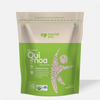
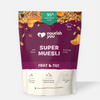
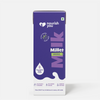
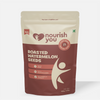
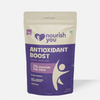
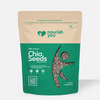
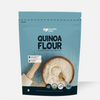

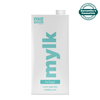
Comments
Leave a comment